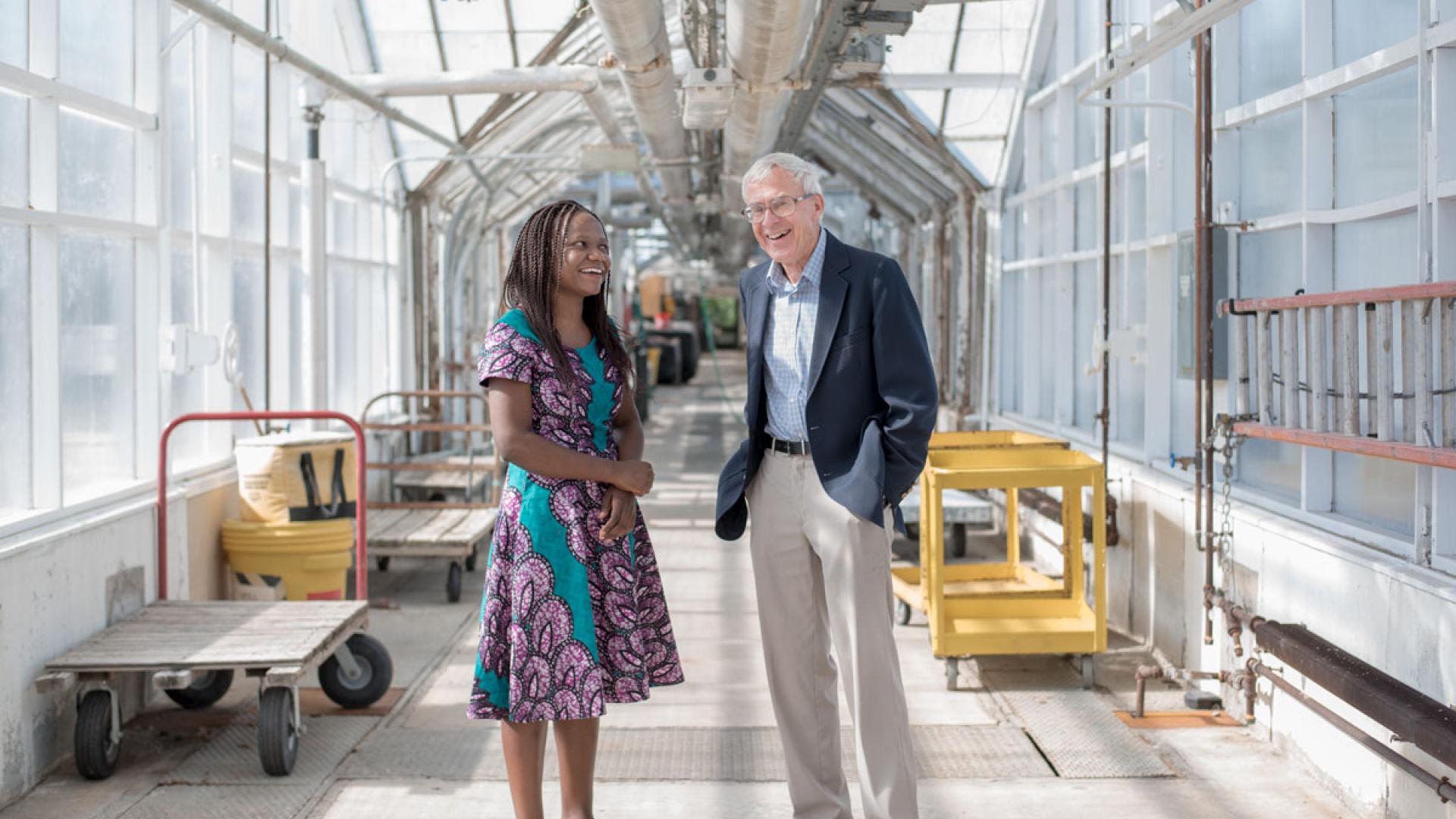Kalenga Banda studies horticulture not just because of a love of plants, but a love of people.
In her home country of Zambia, sweet potatoes are a staple crop critical to the diet of millions and grown primarily by small-scale female farmers. Yet while grains have been well studied in the landlocked country in southern Africa, very little work has been done on root crops.
As a young student, she dreamed of pursuing research in post-harvest horticulture that could be applied directly to farmers she saw struggling to make a living growing the nutrient-dense vegetable. She realized that by studying this critical food she could help address issues like gender disparity and female empowerment in a country where much of the labor-intensive agricultural work is done by women.
With the Cornell Assistantship for Horticulture in Africa (CAHA), she found the opportunity to do just that.
Created in 2006 by a gift from Chris Wien, M.S. ’67, Ph.D. ‘71, professor emeritus of horticulture in the School of Integrative Plant Science, CAHA provides a doctoral assistantship to one student from sub-Saharan Africa who completes coursework at Cornell but conducts dissertation research in the region. The position is contingent upon the student returning to his or her home country after their doctoral degree is complete.
“Too often you see students get really involved in some fascinating project at Cornell and lose sight of the fact that they came from a country that could really use their help,” says Wien, who in the 1970s spent time working in Africa at the International Institute for Tropical Agriculture. That experience awakened him to the continent’s need for greater support in horticulture education.
The social commitment embedded in the program is precisely what appealed to Banda. “When I saw it, I thought, ‘This is for me’,” says Banda. “Studying at Cornell allows me to pursue research that will improve the lives of farmers—especially female farmers—in my home country.”
Her research specifically targets the damage caused to sweet potatoes when they are mechanically harvested from the ground, a process that can make them susceptible to pathogens, rot, moisture loss and shriveling. She is examining how the tubers heal, especially under the moisture-stress conditions prevalent in Zambia. Because some cultivars heal better than others, Banda is identifying cultivars that can be stored longer, which in turn increases the economic output of farmers.
Banda is also examining the critical points where losses occur along the crop’s value chain, from farm to market. In that effort she is collaborating with agricultural economist Jan Low, M.S. ’85, Ph.D. ’94, whose efforts with orange-fleshed sweet potato varieties in sub-Saharan Africa earned her the World Food Prize in 2016. In the process, not only will Banda expand a crucial knowledge base for a significant staple food in her own country, she’ll also sharpen the skills that will enable her to have a horticulture career that has social and scientific impact.
“I want there to be a purpose to what I do in my chosen field,” she said. “What I do afterwards will be an extension of what I am doing right now.”





